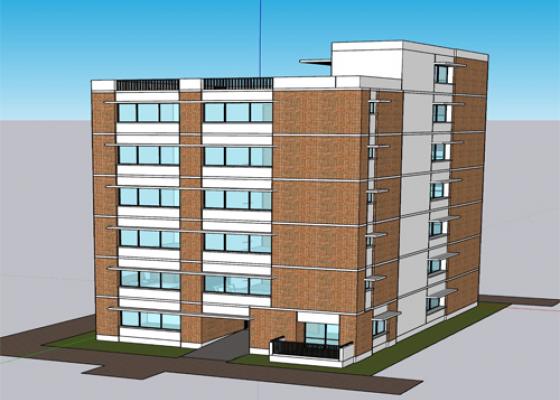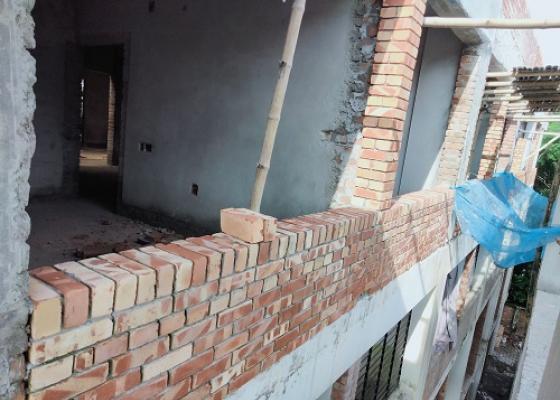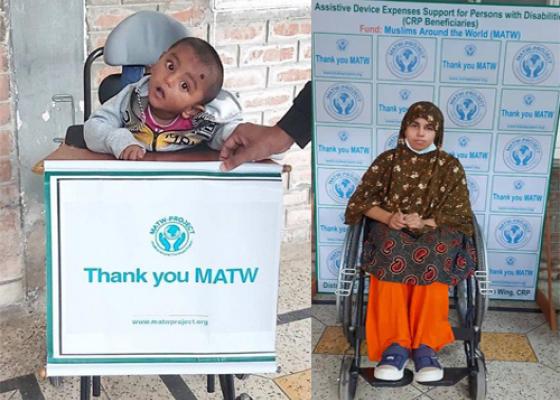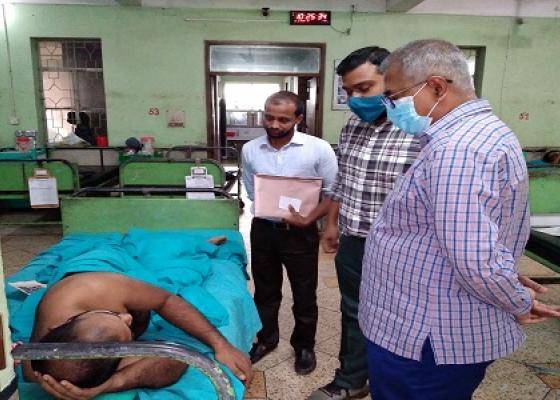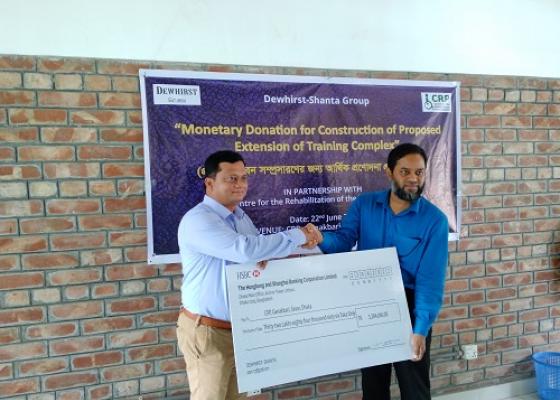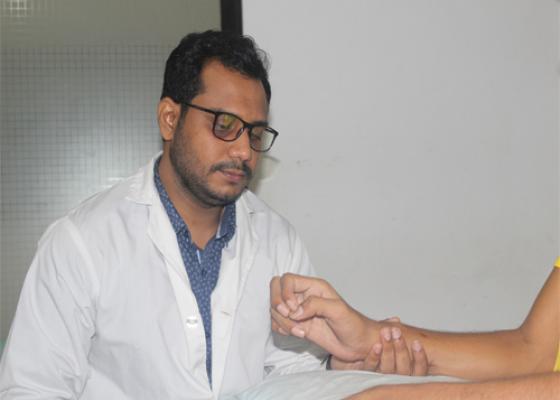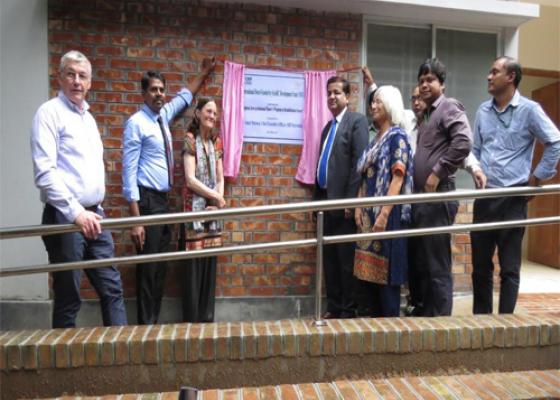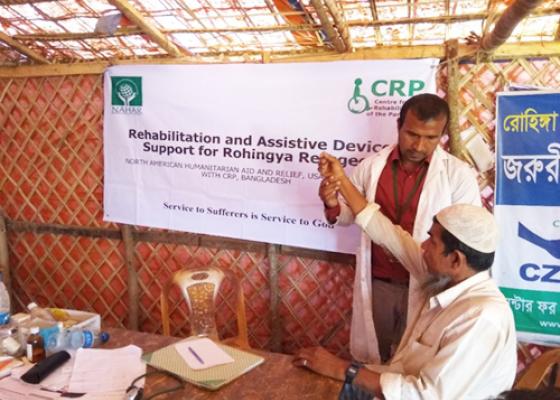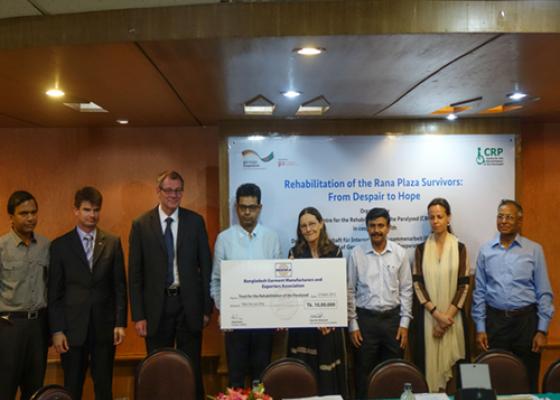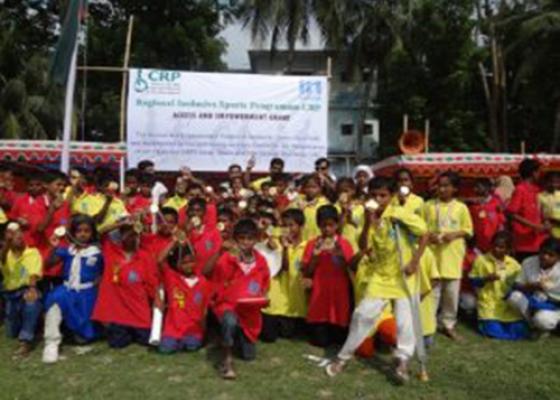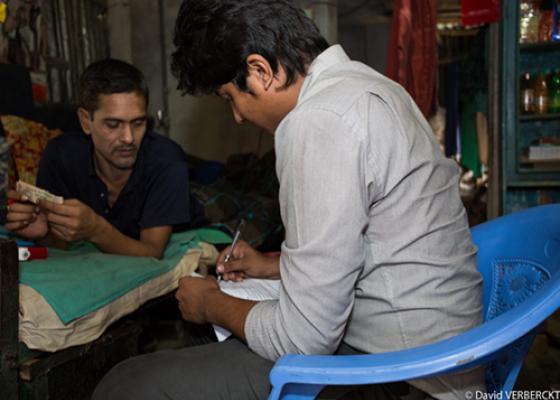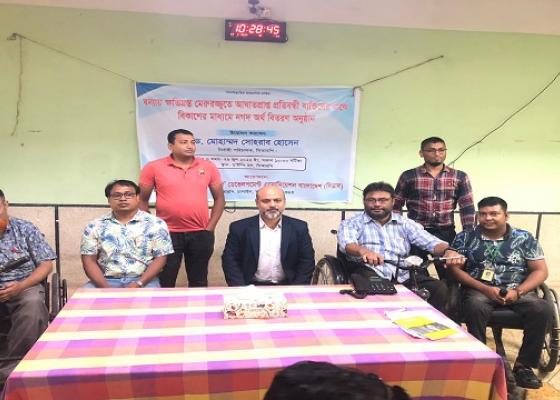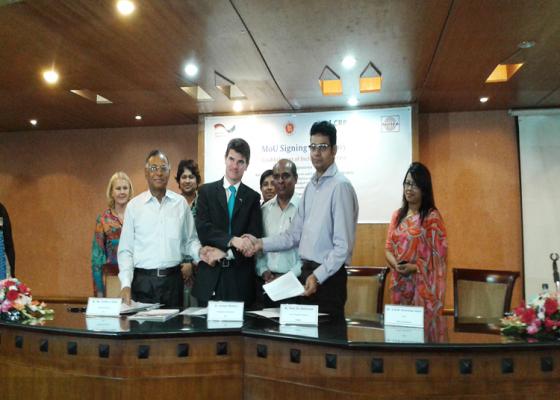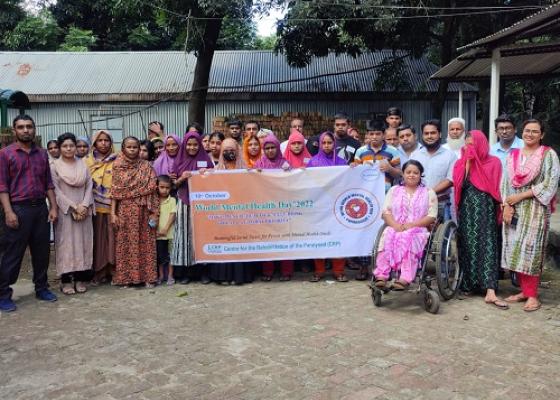Marks & Start Industrial Project
Marks & Start Bangladesh
Marks & Spencer is a retailer committed to corporate social responsibility, and consequently aims to make local communities better places to live and work. Marks & Start is a social project created by Marks & Spencer. Through the Marks & Start program, Marks & Spencer gives work experience opportunities to people of different ages and walks of life, helping them get ready to access the world of work. This project helps over 2,500 people globally each year, many of whom face real barriers getting into work. Beneficiaries include the homeless, people with disabilities and young unemployed. It also includes school children, students who are the first in their family to aim for higher education, and parents who want to return to work.
Marks & Spencer started the Marks & Start program in Bangladesh with the objective of training and employing disabled people. CRP has been the project implementing partner in Bangladesh since 2006. Up to now, a total of 1,600 disabled workers have been trained and employed in 70 sourcing factories under the Marks & Start program in Bangladesh.
CRP and Marks & Spencer have joined forces to train disabled people and employ them in Marks & Spencer’s sourcing factories in Bangladesh. CRP, headquartered in Savar, was founded in 1979 in response to the desperate need for services to assist spinal cord injured patients. Since then, CRP has developed into an internationally respected organization. As a non-profit, non-government organization, CRP treats and rehabilitates disabled people regardless of their economic means. CRP’s holistic approach caters for patients’ physical, emotional, social and economic needs during and following treatment. Given their complementary objectives, Marks & Spencer has set up two training centres at CRP under the Marks & Start project. Three different types of training are provided under this project; sewing, linking and computer operations. Training is given at two different locations, both of which have hostel facilities.
Marks & Start program activities in Bangladesh:
Marks & Start commitments: The Marks & Start project year runs from April to March annually. Before the start of each project, we obtain commitment from the factory management regarding the number of workers that the factory will take on during the project year. The actual selection process is carried out on a bi-monthly basis.
Target group and referral: The target group is all physically challenged persons with disabilities (PWD). We identify potential recruits with the help of local District and Upazila Disabled Development Councils. Applicants must be between 18 and 30 years of age. Once chosen, the councils are requested to bring the selected applicants to CRP.
Selection program: We arrange selection programs to run bi-monthly. We ensure that mid-level factory management representatives, Marks & Spencer, CRP and the disabled applicants are present during the selection program. Sewing, linking and computer operation hires are selected via each two-month long training program.
Buddy training program: Buddy means “friendship”, which, in this context, means selecting a co-worker and helping them adjust to their new environment. Everything will seem unfamiliar to the new employee; the factory environment, co-workers, sewing floor, machine, work, supervisors, line chiefs and many other things. Through the buddy training program, we train new employees how to deal with their new environment, people and any other issues. This is the reason why supervisors, line chiefs, welfare officers from the factory, representatives from Marks & Spencer and CRP take part in buddy training.
Medical check-up: All trainees undergo at least two thorough regular medical check-ups during the training program. They are each given a fitness certificate by the CRP doctors after the check-up to prove that they are physically fit. Fitness certificates are required prior to starting work in a factory.
Coordination meeting: Meetings are held two to three times per year and bring together local Disabled Development Council board members, different NGO representatives, representatives from Marks & Spencer, factories representatives, CRP and experienced workers. Problems and solutions relating to disabled employees are discussed extensively during these meetings, along with discussions about how to increase the involvement of disabled women in this project.
Steering committee meeting: Steering committee meetings take place quarterly. One of the objectives of these meetings is to motivate workers regarding their work, saving for the future, and cooperating with their supervisors and line chiefs to help them become more skilled at what they do. During these meetings, we also discuss overall project activities, the performance of PWDs, social barriers and challenges, and any success stories.
Certificate distribution ceremony: Trainees receive completion certificates after finishing the training program. The program encourages the trainees to aim for high quality during the training, and helps them become better professionals in their respective field of work.
Factory visit: Once a month, the trainees are taken to different factories to gain a practical understanding regarding production facilities. In addition, the trainees get to learn about the factory environment, the nature of the work, and to get into the spirit of working. These visits ensure a greater eagerness to learn during the training, and foster a competitive mentality among the trainees, which always leads to better results at the end of the training.
Marks & Start Cultural Exchange: This program is conducted once a year. Trainees eagerly look forward to this program. Not only does it serve as a reunion for all the trainees, but gives them an opportunity to enthusiastically take part in a day-long series of activities alongside the factory owners, a chief guest, special guests, other workers, and Marks & Spencer and CRP representatives. During the program there are some special events, such as a basketball completion and cultural function (with participation of PWDs) and an awards giving ceremony. Prizes awarded include:
- Best contributory factory owners, with awards for recruiting the highest number of workers.
- Best worker, with awards for the top three selected.
- Couple gifts – for those living a happy conjugal life.
- Everybody receives a gift at the end.

